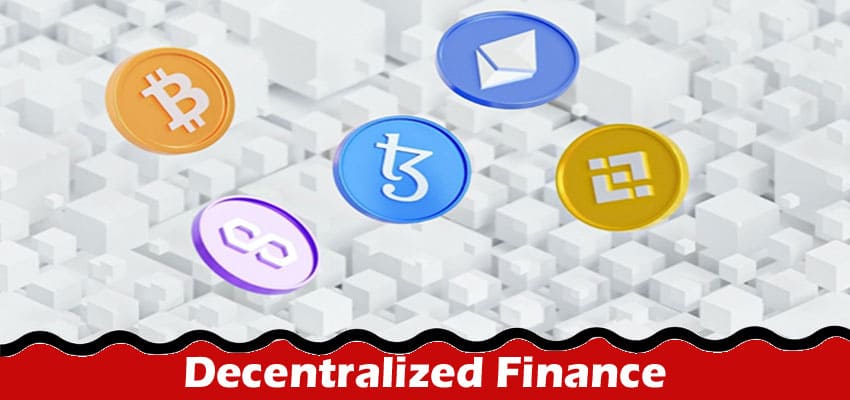When you think of the financial world, it’s easy to envision large banks and corporations dominating the landscape. But how is this changing?
Decentralized finance (DeFi), a rapidly emerging peer-to-peer movement built on top of blockchain networks, aims to decentralize many aspects of finance. By leveraging technologies such as smart contracts and distributed ledgers, DeFi protocols are making it easier for users to borrow and lend without traditional intermediaries or red tape. But where does that leave us?
In this article, we will explore what DeFi is, its potential use cases, associated benefits, and current challenges, in order to build an understanding of how decentralized finance could revolutionize the industry.
Defining Decentralized Finance
Decentralized finance is a rapidly growing sector of the cryptocurrency space that uses DeFi coins, which represent a digital version of fiat coins. DeFi is characterized by its use of decentralized protocols, smart contracts, distributed ledgers, and other forms of open-source technology.
These technologies allow for secure and permissionless access to services such as lending, borrowing, trading, asset management, and even innovative wealth creation through liquidity mining without relying on central intermediaries or centralized governance models. By removing this third-party risk factor from financial activities, users can gain access to more secure services efficiently and at a lower cost.
As DeFi coins grow in popularity, so does the opportunity for investors to tap into an ever-expanding network of cutting-edge financial technologies that have the potential to revolutionize global finance.
Understanding the Uses and Benefits of DeFi
DeFi has quickly become one of the leading fintech tools in the business. By utilizing blockchain technology, DeFi is a decentralized financial services platform that enables users to access solutions such as loan providers, finance exchanges, and asset management services without needing to rely on traditional financial institutions. It can even enable those without access to mainstream banking services to participate in the global economy.
There are numerous benefits to using DeFi, which include lower transaction costs when compared to traditional models, superior security and transparency provided by smart contracts and immutable ledgers, greater economic opportunity within developing countries, faster processing of transactions, and much more. All of these features make it an attractive option for anyone looking for an alternative form of digital finance.
The Challenges of DeFi
Savvy crypto investors have taken advantage of DeFi’s many benefits, such as its flexibility, possibilities for automation, and cost savings. But talking about the challenges associated with DeFi is equally important.
From smart contract risks to human errors leading to immense losses, DeFi can be risky if not managed carefully. There are also challenges posed by legal uncertainty due to a lack of universal regulatory guidelines, which could lead to costly compliance errors down the road.
Beyond that, DeFi still lacks an efficient infrastructure that allows for reliable secure transfers between two different networks. Despite these issues, it is clear that DeFi is here to stay and with proper planning, investors can enjoy its advantages while minimizing the risks it presents.
Why Decentralized Finance Is Important
Decentralized finance is an important development as it offers many advantages that can help push humanity forward. Using advanced technology such as blockchain and cryptography creates a financial system that is more open and transparent in comparison to traditional finance. It allows for things such as reducing costs for parties involved in transactions, increasing efficiency, easing access to capital, and ultimately promoting financial inclusion.
This can have wide-reaching impacts, from broader access to loans for everyday people to the ability to easily open savings accounts or obtain insurance. DeFi is also beginning to provide opportunities that had not been available through traditional financing before, such as access to cryptocurrency-backed loans. It is clear why decentralized finance is important; because its potential benefits can be brought forth with the right mindset and actions by stakeholders across the world.
How Decentralized Finance Can Be Used in the Real World?
By cutting out the middlemen, DeFi works in favor of users not only by providing them with better control over their own funds but also giving them access to services such as loans and insurance offerings from anywhere on the globe, without any additional paperwork or lengthy waiting times. Ultimately, decentralized finance can be used in the real world to allow individuals more freedom than ever before when it comes to managing their money.
Bottom Line
Decentralized finance is an exciting new area of the cryptocurrency world that offers a variety of benefits over traditional banking. By understanding how DeFi works and what it has to offer, you can make more informed decisions about whether or not this type of financial system is right for you.


